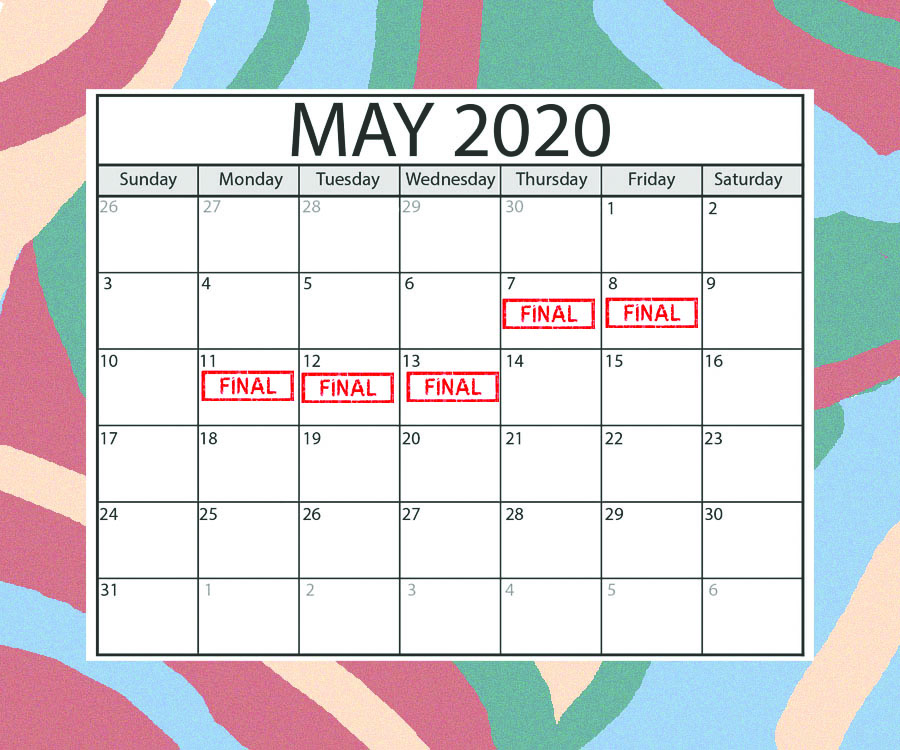Students may notice a slightly different finals schedule than usual this semester with the breakup of a traditional finals week.
Instead, students will begin testing on Thursday, May 7, carrying over into the following week until Wednesday, May 13.
As marked on the Binghamton University academic calendar, classes will end on Tuesday, May 5 with Thursday classes meeting on that date. The next day will be a reading day, followed by two days of tests and then two other reading days over that weekend. According to Donald Nieman, provost and executive vice president for academic affairs, Thursday classes will meet on the final day of classes because the University needs to meet a guideline that requires there be 14 of each weekday classes throughout the semester.
Nieman wrote in an email that the finals schedule is arranged in a way that meets state and federal credit guidelines, including “senior days.”
“It assures that we have 14 of every day of the week during the semester, which is necessary to meet state and federal guidelines defining the amount of class time necessary to confer a credit hour,” Nieman wrote. “It also allows two ‘senior days,’ days after finals when other students have left campus and seniors can participate in activities with friends.”
The Faculty Senate University Calendar Committee is responsible for designing and finalizing the year’s academic calendar. The committee, chaired by Nieman, is composed of faculty and students, as well as the staff who work in areas affected by the calendar, such as Residential Life, Physical Facilities and Student Records and Registrar Services. Nieman noted that this was not the first time the University has changed finals, doing so to accommodate for “senior days” in previous years.
Nieman wrote that the committee attempts to design the most accommodating calendar possible every year, but faces constraints in doing so.
“There is wide discussion in the committee designed to create the best calendar possible while taking into account the many constraints faced, such as having the right number of class days, at least 10 unbroken weeks of class, accommodating holidays and breaks, having sufficient time to accommodate a full summer term and a winter session and many more,” Nieman wrote. “It’s a very complicated process but all perspectives are represented.”
Brendan Marry, a junior double-majoring in psychology and history, said the calendar change is unfair to those who may have finals on Thursday and Friday.
“I don’t believe that the students having finals on Thursday and Friday are given the same opportunity to study as those who have finals the next week,” Marry said. “That’s two extra study days taken away from them just because they have earlier finals.”
Other students, such as Olivia Gray, a sophomore majoring in environmental studies, feel the change is not that major.
“Other than a possible minor inconvenience, I don’t think this change will make much of a difference,” Gray said. “I feel professors will still be accommodating if students have multiple tests within a short time period.”



